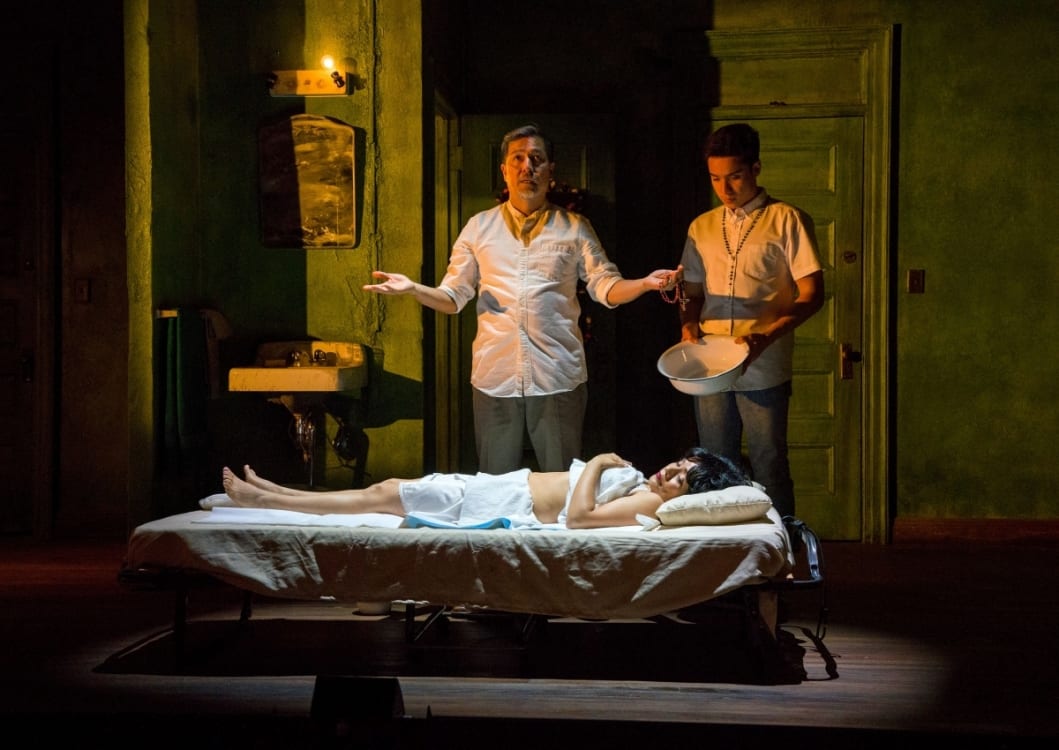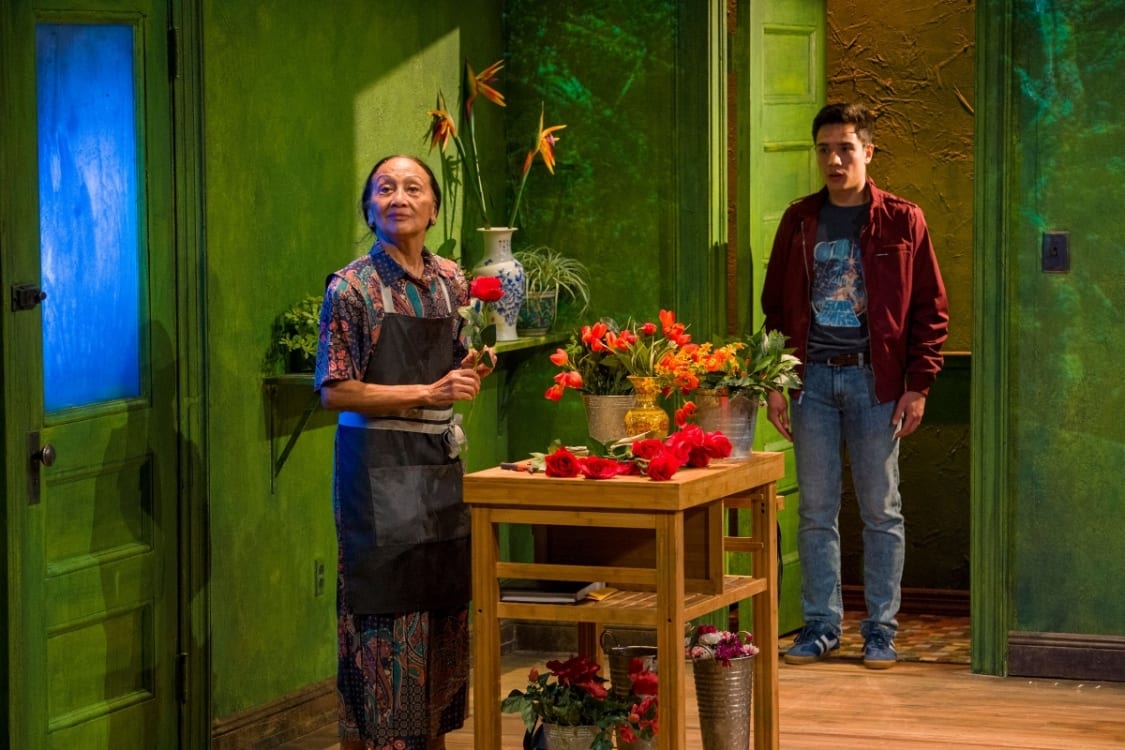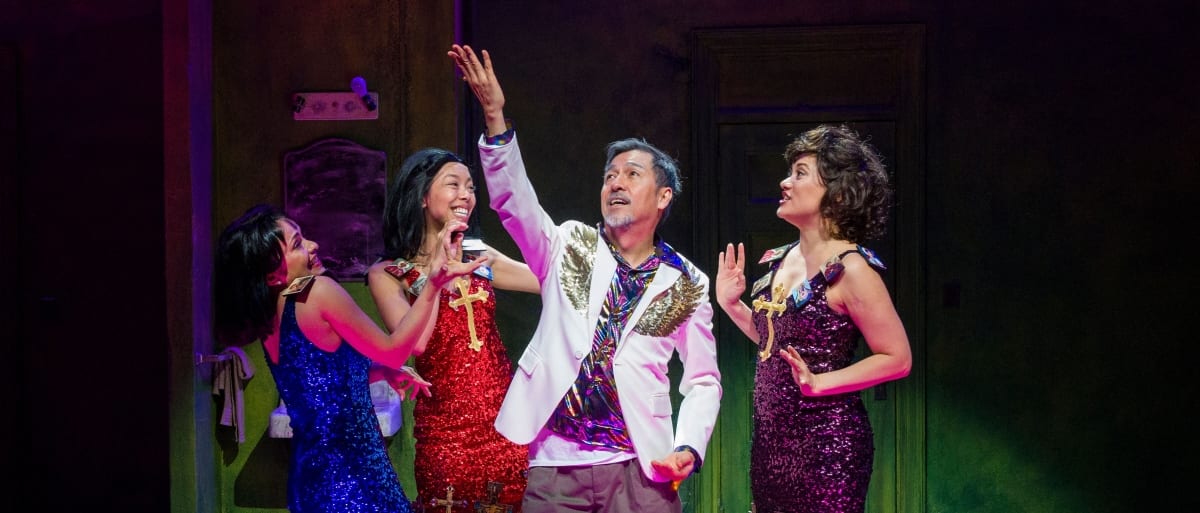“Did you hear? Felix Starro is coming!” echoes around the stage, opening for the first time ever an Off-Broadway musical created by Filipino-Americans. Acclaimed like the Messiah, Felix Starro (Alan Ariano), an old Filipino healer gifted with magical hands, arrives in San Francisco in an attempt to heal his people. With the help of his grandson Junior (Nacho Tambunting), they set up in their dodgy motel room, waiting for desperate yet faithful patients to pour in.
With a bottle of whiskey and a little pocket statute of Virgin Mary set up side by side on his bedside table, the renowned Felix Starro is rapidly revealed to be an arrogant, money-driven scammer. However, the scam and the amount of money they make does not impress Junior, whose only dream is to get out of the family business and stay in the United States with his beloved Charma. On the other hand, Junior’s grandfather cannot imagine not going back to his dear island. Illustrating a generation gap braided with a nevertheless sweet grandfather-grandson relationship who both symbolically share the same name, Felix Starro brushes through both faith and identity issues, but Junior’s shiny eyes as he makes the big decision of changing his name are not sufficient enough to gain the audience’s sympathy.

Although the music and voices are recognizably strong, both the acting and the characters’ string outs within the writing itself lack profoundness. If not emotionally powerful, one would at least expect from this “first-time-ever a musical created by Filipino Americans is presented Off-Broadway” experience to be riddled with culture, but this expectation fails to deliver as well.
That being said, Ching Valdes-Aran’s performance is remarkable. The award-winning actress plays the role of Flora Ramirez, a woman who supplies Junior with fake documents, including an ID, as well as flowers to mourn his lost identity. The mise en scene is clever, allowing Flora’s charming flower shop and the dodgy motel room to coexist beautifully. Ching Valdes-Aran’s strong acting skills drag Felix Starro’s identity quest into something deeper: the feeling of failing to exist without a passport and having to change your name as a metaphor of changing who you are in order to be accepted by others.


